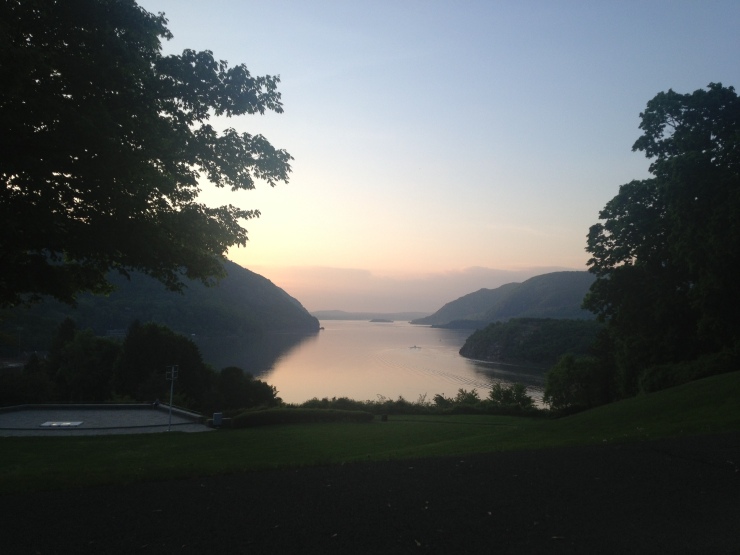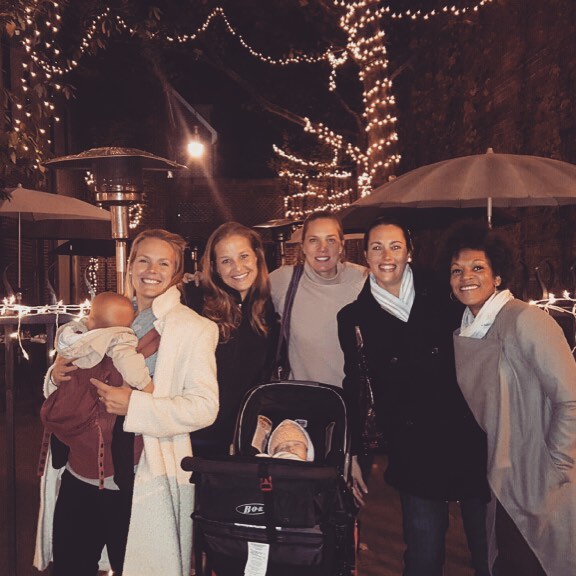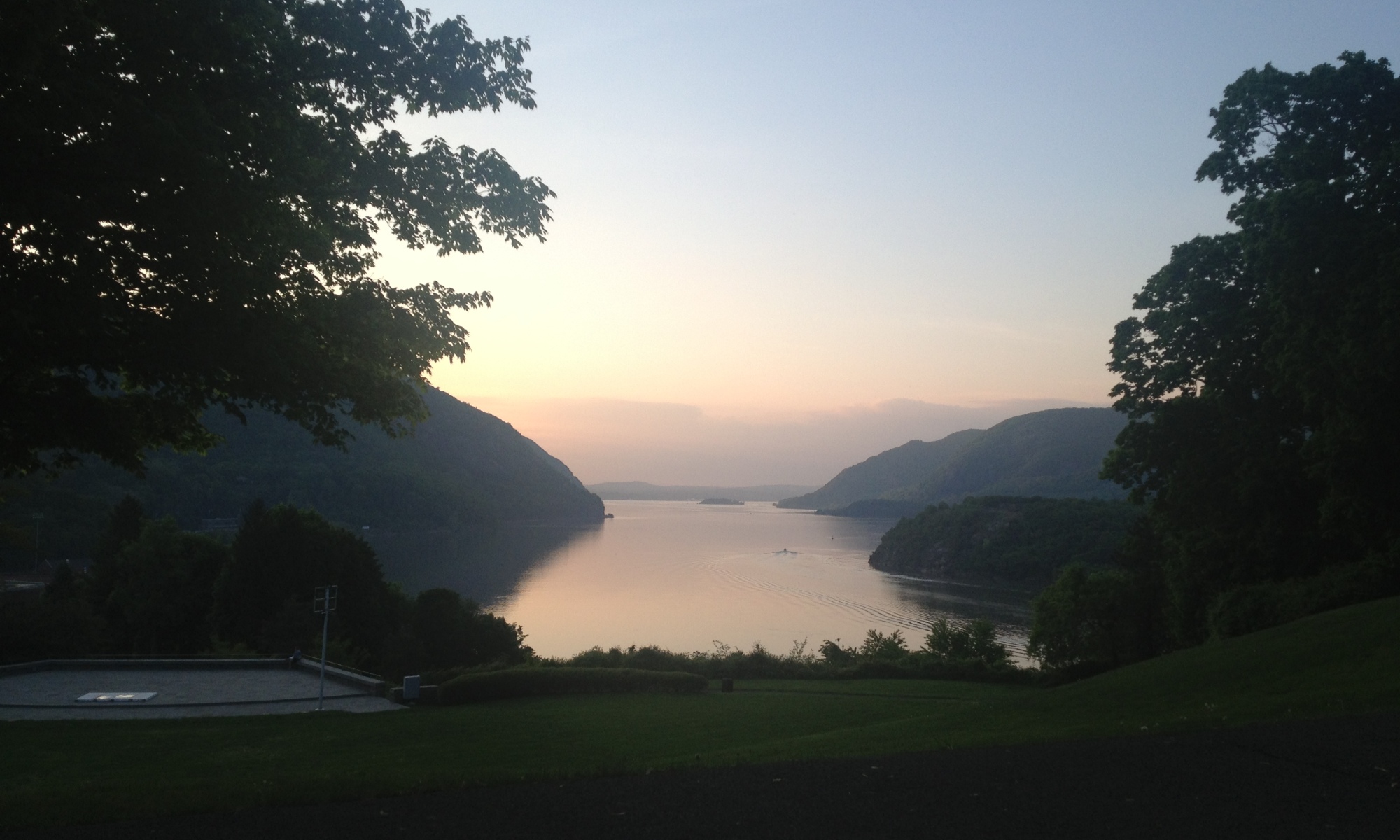
Many of you know that for the past three years, I have been working on writing my debut novel. It is with great joy that I can announce, that today—I have finished the first major revision of the manuscript, and I am ready to begin shopping it to agents nationwide.
Here’s the pitch: Beyond the Point is a novel based on the true story of four women who went to West Point and their struggle to maintain their friendship across war, marriage and life after college. I tell people it’s like Sisterhood of the Traveling Pants meets Zero Dark Thirty. That usually gets people to laugh and lean in.
I was born at West Point. I lived there again from 1997-2003, when my dad was serving as a professor at West Point. Though I wasn’t a cadet myself, I had a unique vantage point on the women that chose that path. I tell people it was like living at Hogwarts, but never getting to learn any of the magic. Over the last few years, I’ve learned the magic. I’ve interviewed those original four women extensively, but I’ve also interviewed dozens of other graduates of the U.S. Military Academy at West Point, too. Beyond the Point is a novel that provides a composite picture of all their stories. It answers the question, what happens when girls like you and me put on a uniform and decide to serve? How does your faith change when you face suffering? And what is the nature of friendship, when time and distance separates us?
Here’s why I think the world needs this novel. Unfortunately, as it stands — the majority of the stories we hear about women in the military focus on non-fiction accounts of sexual assault or the pioneering women who were “firsts.” The first female general. The first female Army rangers. And while those stories are harrowing and inspiring, they also create a sense of distance between the average U.S. woman and the picture of that woman in uniform. Those “first” stories might, inadvertently make girls like me, think that they aren’t intense enough to serve. But that couldn’t be further from the truth. The reality is, the Army is full of women just like you and me. Women that have hopes and dreams and friendships and relationships and chipped nail polish and an addiction to Madewell. The world deserves to see more women in uniform in pop culture.

And I’m not just saying that because I want a movie deal (although I do). The future security of our nation depends on the next generation of girls seeing military service as a viable, honorable path that is open to them. Already, congress has enacted a law that requires 18 year old women to register for the draft. If that day comes that they need to step up to serve, will they be ready? Will they be able to picture in their minds, what it might look like to put on that uniform?
I’m excited, now, to share an excerpt from the novel with all of you who have been with me through every step along the way. And the fact that I am doing it today is significant. Exactly ten years ago, on November 15th, 2006, a 2004 graduate of West Point named John Ryan Dennison, was killed in action while serving in Iraq. His then wife, Haley Dennison, was deployed in Afghanistan. Their story—her courage in the face of loss—sparked the inspiration that led to this novel.
That I would finish this major revision on this day of all days? I think God orchestrated that. I think he cares about dates, trips around the sun, and honoring the past. I think he wants us to remember. And I hope, through my words, to help you to remember, too.
And now… for the excerpt:
THE GIFT.
NOVEMBER 13, 2006 // TARINKOT, AFGHANISTAN
Assuming he was scared by her gear, Hannah Nesmith took off her helmet and sunglasses and placed them on the ground.
“Hatha le-ik,” she said. This is for you.
The boy wore navy pants and a striped shirt, both at least two sizes too big. Dark toes peeked out of his sandals and his heels threatened to strike the rocky ground. Every student at the school was dressed this way. Nothing fit. Everything covered in dirt. His arms and neck and face were tanned and smooth—the color Hannah liked her coffee to be when it had the right amount of cream and sugar.
The boy took two steps backward, his mouth closed tight, like he was trying to swallow something bitter. She knew he probably wasn’t used to interacting with women, and yet, Hannah’s commanding officer had sent her platoon on this humanitarian mission specifically because she was a woman. He said her presence would put the children and the teachers at ease. But Hannah knew these children would think she was a transformer robot before they believed she was a female. She wore an ID patch on the bicep of her uniform and an M16 slung over her shoulder. A kevlar vest flattened her chest and before she’d taken it off, the helmet hid a bun at the nape of her neck. But surely he could overlook her brunette hair and blue eyes for the sake of a free, fully inflated soccer ball, Hannah thought. When the convoy had pulled up an hour earlier, the children were using a ball of trash tied together with string.
There were no clear roads leading to the school, no buses. The infrastructure for education had crumbled because for decades the Taliban had used this part of the nation as a haven for opium production and Sharia law. Hannah wondered how far this child had had to walk to school, what his parents did all day, and whether or not there was even food at home for him when he returned at night. Across the field of rocks and dust, a male teacher wore a white salwar kameez, the long traditional linen garment with a high collar. A blanket hung over the doorway to the classroom and inside, there were a dozen scrap wood desks surrounded by cracked walls and posters of Arabic prayers. Pockmarked, bullet-riddled blackboards at the front and back of the room were covered with arithmetic problems written in chalk. If the children needed to use the bathroom, they had to walk 200 yards to a trench behind the school. Sometimes they didn’t make it that far, which was why the entire courtyard smelled of warm urine.
Hannah licked her lips, feeling the dry, parched sensation cross her tongue and fill her mouth. Afghanistan assaulted her, constantly pressing every inch of her skin with its hot fingers. Her chest rose and fell, as though her lungs didn’t know how to breathe in air this thick, and sand found its way into her hair, ears, mouth and nose—every crevice it could find, as if it were trying to bury Hannah alive. Ignoring her growing thirst, she focused on the boy in front of her and lifted the soccer ball once more.
“This is for you,” she repeated in English.
Again, no response.
Maybe Tim and Dani had been right after all. Sophomore year at West Point, they’d tried to persuade her to take Arabic, but how could she have known? That was before the towers came down. Before war was a certainty and not just a possibility. Even still, Hannah would have stuck with Spanish. West Point was hard enough without the pictographs.
She couldn’t understand what he was doing. Now he was crying, looking back over his shoulder at his classmates, who were busy running after Private Stanton and Sergeant Willis. Willis and Stanton were terrible, bobbling around with the ball, holding their M16s so they wouldn’t swing around their backs. The children were laughing. It had turned into a game of chase.
“Hal taraa,” Hannah continued. “Look.”
When he turned back to look at her, the little boy’s eyes narrowed with hate. A loogie of spit came out of his mouth, flew through the air and landed on the ground between them. Then he wiped his mouth, ran across the school yard to his classmates and put his hands up in the air to stop them. Hannah could no longer keep up. The boy was yelling. He pointed back at Hannah, at the soldiers, at the sky. Every now and then she heard the only Arabic word she really knew. Allah.
Slowly rising from the ground, Hannah put her helmet back on her head, kicked the wet dirt and had a dismal thought.
How were they supposed to win the war if they couldn’t even give away a gift?


Are there stories of going thru training at West Point or only service afterwards. I’d love a story on West Point life. I’m looking forward to reading this one.
You’re right – this is a story that needs to be told! I loved the excerpt and wish it was longer. Is it possible to sign up for an e-mail alert when the book is published? I would love to read it!
Fantastic. Of course, I want a signed copy. You were a gifted student in my class, and clearly a gifted writer. Can’t wait to read the entire story. Wishing my former “scarecrow” all the best and success!
You are an amazing writer; the story “glimpse” that you gave drew me in immediately. I can’t wait to read it!
This brings back many very vivid memories Claire, wonderfully written and can’t wait to read more!
aahhhh!!! Every word I read is precious